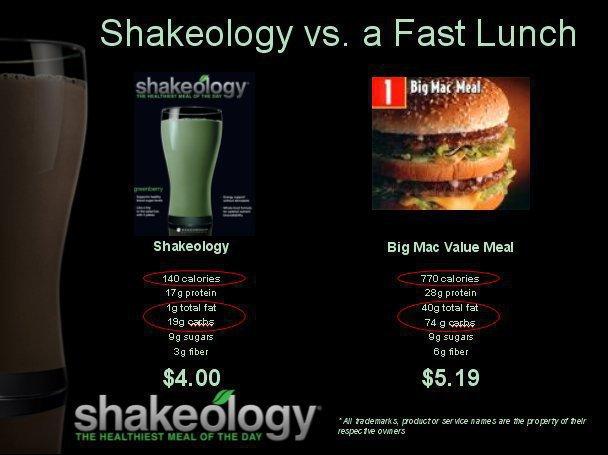To Fast or not to Fast: 48 Fasting Essentials
48 Intermittent Fasting Essentials: To IF or Not to IF

What is it about intermittent fasting that has made it so popular recently? Intermittent fasting or IF has become one of the most searched for and talked about health and fitness trend lately. It is so popular that it garnered The New England Journal of Medicine featured review article. Many seek IF to enhance their health status, reverse type 2 diabetes, shed some pounds off, and improve their overall quality of living. In the long run, it can even help you save money and time.
In the past, you would hear nutrition experts repeatedly emphasize taking regular meals in small portions and never skipping a meal each day. Fast forward to today, some of those same experts will tell you to change your regimen. Now, they recommend an intermittent fasting approach that involves food timing with periodic short fasts seen to result in significant health benefits.
Take a FREE test drive for 14 days! Are you ready to lose weight, build muscle, or feel more fit? Join Beachbody On Demand, and get unlimited access to Beachbody’s world-famous programs, including 10 Rounds, 80 Day Obsession, Liift 4, 21 Day FIX®, Body Beast, Insanity, The WORK, Barre Blend, TurboFire, PiYo, P90X®, 21 Day Fix Extreme, T25 and 100’s more. Don’t miss out on your chance for amazing results. Sign up today!
Susan Blum, M.D., a functional medicine practitioner wrote about the important of breakfast in 2013. Today, Dr. Blum says, you can skip it. Numerous studies have shown how IF can have such powerful effects on one’s brain and body as well as promote longevity. The practice of IF follows a cycle of eating and fasting periods. Learning how to do it properly can help you decide if it is an option that you can take or not.
Here’s everything and anything you need to know about IF:
- Intermittent Fasting is essentially an eating pattern that alternates between periods of eating and fasting. The emphasis is on the timing of your eating activities rather than which foods you should be consuming. It is because of this that it is more accurately considered as an eating pattern more than a diet in today’s conventional description.
- Fasting is not actually new as a practice as it has been present since the beginning of human evolution. Unlike the present generation of refrigerators and supermarkets, food was not readily available all year-round for the ancient hunter-gatherers. There were times when food was scarce and there was nothing to eat. As such, humans adapted with their environment and evolved to continue to function without any food for prolonged periods of time.
- In this sense, fasting is more natural when done from time to time than eating 3 or more regular meals each day. The most common IF methods entail fasting that lasts for 16 hours daily or for 24 hours twice in a week.
- However, fasting is not starvation. A crucial factor that makes the two different from each other is control. Starvation involves a non-voluntary, deliberate absence of food for an extended period of time. Consequently, it can result in severe suffering and on the extreme end, death.
- On the other hand, fasting is a voluntary and controlled avoidance of food for weight loss, health, spiritual, and other reasons. It is not for people who are underweight but for those who have enough stored fat to sustain them through the fasting period. When it is done right, it is not expected to result in suffering or death. Intermittent fasting will not put you into starvation mode. This is a myth and it is not true. Some studies suggest that IF has the potential of increasing your basal metabolic rate initially and result in the enhancement of overall body composition.
- When you are doing IF, food is conveniently available, but you opt not to consume them. The length of time by which you do so can vary from just a few hours to a number of days or even weeks but with medical supervision. You can choose the time by which you want to start fasting and you can end it anytime you want to as well.
- At any time that you’re not eating, you are fasting intermittently. For instance, you can also fast between dinner and then breakfast on the next day. This can run for a period of about 12 to 14 hours of fasting. But ultimately, it can be made part of your daily routine. As mentioned earlier, you can also extend fasting up to 16 hours. So that means, you have to be done with dinner at 7 p.m. and then have an early lunch by 11 a.m. You have to avoid midnight snacks and then skip breakfast to make this possible. It is very doable this way as you will be asleep for the most part but the healthy changes that will take place in your body will be tremendous.
- Terry Wahls, M.D., a functional medicine physician and The Wahls Protocol author noted how research studies on IF benefits as well as time-restricted eating have continually accumulated. Research has it that these kinds of strategies tend to result in an improvement in insulin sensitivity, a reduction in obesity, and reduction in inflammatory cytokines. An improvement was also seen in the effectiveness and efficiency of the mitochondria and an increment in the brain’s nerve-growth factors.
- IF has become a thoroughly exciting field of research. With that said however, it is likewise important to note that these studies are fairly new and still ongoing. Medical Director Dr. Elizabeth Boham of the UltraWellness Center points out that the evidence that exists on intermittent fasting is not yet enough to claim that it is the best and that it is dependent on the person practicing IF.
- In specific, those who are underweight with a BMI less than 18.5 or have an eating disorder history like anorexia are not advised to do intermittent fasting. The same will hold true if you are pregnant or breastfeeding as you will need the extra nutrients for your baby. If you are under 18 years old, it is unwise to do IF. Medical supervision is required if you have type 1 or 2 diabetes mellitus; if you are taking prescription medication; if you have high uric acid or gout; and if you are suffering from a serious medical condition including heart, kidney, or liver disease.
- It is often assumed that the benefits of intermittent fasting can be attributed to diminished food consumption. This may be the case because you do eat less food naturally due to the shorter eating window. However, reduction in food consumption is not the main objective of intermittent fasting as the experts believe that reduced calories only accounts for some of IF’s positive effects.
- Accordingly, the practice of IF does not entail any restriction in the amount of food that you consume while you are on the eating window. Still, choosing whole foods that are nutrient-dense and being religious with your hydration are critical. Most of the benefits of IF seem to come during the digestive process or the fasting window in the hours between your meals.
- You see, the digestive process is hard work. In any given day, your body spends 5 to 15% of its energy to digestion. Needless to say, your giving your GI tract a long break from this tedious task when you fast and a lot of people have noticed how IF has helped improve their digestive health.
- Another important benefit associated with intermittent fasting is autophagy, which is the body’s natural way of clearing out damaged cells or dysfunctional components. Apparently, it is observed to begin by hour 22 of the fasting window. Earlier than that, at hour 13 or 14 of the fast, other positive effects are also observed and then it shifts into high gear by hour 15 or 16.
- Breakfast is a term that is actually very close to the essence of what intermittent fasting is. Breakfast is descriptive of the meal that breaks the fast and that is done everyday. Evidently, it is not some kind of cruel punishment but an English term that acknowledges how fasting is performed on a daily basis even if it is done for only a short time. In this sense, IF becomes a natural part of everyday life and is not some unusual diet regime. It is also because of this that it is considered a powerful dietary intervention with tons of therapeutic potential.
- At its core, IF makes it possible for your body to utilize stored energy by burning excess body fat. This is considered a normal occurrence as human beings have evolved to fast without any detrimental health consequences. Body fat is food energy that was stored away for future use. If you do not eat, the insulin levels go down and in turn signals the body to burn stored fat as there’s none that is coming from the food. The body will use up its own fat to generate the energy that it needs to function.
- With intermittent fasting, the blood glucose drops, so your body will need to pull out glucose from storage and burn it for energy. Glycogen is most readily available as an energy source for the body. It’s broken down as glucose molecules and provides energy for other cells. The energy it provides can sustain what the body needs for 24 to 36 hours. Beyond that, the body is primarily going to break down fat to power up for energy.
- There are several intermittent fasting methods and all of them entail splitting the hours in a day or days in a week into periods of eating and fasting. During the period of fasting, some eat nothing at all or consume very little food. The most popular IF methods are the 16/8 method, Eat-Stop-Eat, and the 5:2 diet.
- The 16/8 method or the Leangains protocol is the one that is familiar to you by now. Typically, you skip breakfast and then restrict the eating period to only 8 hours in a day. So if you had your first meal at 1 p.m., you should be done with your last meal by 9 p.m. Afterwards, the fasting period takes its turn for 16 hours and yes, you can have your first meal again by 1 p.m. the next day. The same cycle then is what you follow each day. What is important is that you are able to fast for 16 hours and then eat within the 8-hour window.
- Meanwhile, the Eat-Stop-Eat is your 24-hour fasting method which you can do once or twice in a week. If you did not eat dinner today, then you give it 24 hours before you take your first meal which is dinner the next day.
- The 5:2 diet is an IF method where you consume 500 to 600 calories only per day, twice a week but on two non-consecutive days of your own choosing. As for the 5 days, you can eat normally without any calorie restriction.
- All three methods will eventually result in reduced calorie intake and cause weight loss on your part. That is, if you do not compensate your fasting days or hours by eating too much during the eating window. Among the three, the 16/8 method is found by most to be simplest and easiest to comply with, making it most sustainable and most popular for the ordinary individual especially when you are just starting out with IF.
- When you are fasting, lots of things happen in the body both at the molecular and cellular level. For one, the levels of Human Growth Hormone or HGH skyrocket and increase to as much as five-fold. This translates to muscle gain and fat loss to mention a few.
- At this time, the cells likewise initiate crucial repair processes as well as a change in the expression of the genes. When it comes to cellular repair, what happens is that the cells digest and then remove those old and impaired protein that typically accrue inside the cells.
- Moreover, intermittent fasting has shown to regulate hormones. The author of The Obesity Code, Dr. Jason Fung expressed that when you do not eat, hormones like insulin go down while other hormones go up, like in the case of cortisol. The body primarily functions in two states with the first one being the “fed state” where the insulin is high. The “fasted state” is the second state where insulin levels are low as it is off duty.
- The goal with IF in order for you to reap the benefits is to achieve better insulin signaling and lowered insulin levels. This state will mean improved body composition and ultimately, weight loss. When insulin levels are lowered, body fat is made more accessible.
- Aside from cell function and changes in hormone levels, the health benefits of IF can also be attributed to gene expression. The changes in the function of the genes are associated with disease protection and longevity.
- Another important effect of fasting in the body pertains to the mitochondria which are like furnaces in the cells that burn fuel and provide energy. IF boosts the mitochondria, feeding them to increase mitochondrial respiration. With their efficiency improved, their reproductive ability is likewise enhanced – in turn increasing metabolism and energy. When the opposite is true and you have a lackluster mitochondria, you may expect poor health conditions resulting in cancer, metabolic syndrome, neurodegenerative disorders, and cardiovascular disease.
- Dr. Sara Gottfried, a functional medicine practitioner agreed that IF can provide the genes protection through epigenetics. Fasting tends to turn the mTOR gene off while turning on the Sirtuin or SIRT1 gene. In the hyperactive state, the mTOR gene is linked with early mortality, cancer, and Alzheimer’s disease. Meanwhile, the SIRT1 gene revs up the mitochondria to fight aging and protect you from the diseases that go with it.
- Dr. Blum shared that intermittent fasting may cause some effects of aging to slow down. In the fasting state, your body is enabled to protect the telomeres’ length, allowing the cells to become healthier and live longer. The telomeres are sections of the DNA which are found at both ends of the chromosomes and help provide protection during replication. When the DNA is damaged however, they get shorter. They get naturally damaged with age but worsen with poor diet, stress, smoking, and exposure to various toxins. As such, the shorter the telomeres, the faster the aging and increased risks of cancer.
- Dr. Fung published an article in BMJ Case Reports showing the effect of intermittent fasting in type 2 diabetes which is characterized by a chronically high insulin and a blood sugar imbalance. It was found that therapeutic IF reversed insulin resistance and controlled blood sugar in three type 2 diabetes patients. The same adults stopped taking insulin for diabetes management. Another study was published in Cell Metabolism in 2018 and it also showed how time-restricted intermittent fasting improved blood pressure, oxidative stress, and insulin sensitivity especially when the eating window was commenced early in the day.
- When it comes to heart health, a good number of research has associated intermittent fasting with lower levels of bad cholesterol or LDL and weight loss. These two factors have been deemed important in achieving optimal cardiovascular health. But IF’s most significant contribution in this area can be attributed to its ability to reduce inflammation. In particular, atherosclerosis is the dominant cause of cardiovascular disease globally and is a chronic immune and inflammatory disease brought about by plaque accumulating in one’s arteries.
- Dr. Boham expressed that high blood sugar and high insulin are linked with that inflammatory process and through IF, that insulin level can be lowered. Vascular disease can be prevented where there is no inflammation and oxidative stress that’s causing changes in the arterial lining and in cholesterol.
- People try intermittent fasting because of this one primary reason and that is weight loss. IF is seen as a very powerful tool to use for those wanting to lose weight. As you eat fewer meals, IF may lead to an automatic calorie intake reduction. It also changes hormone levels that accelerate weight loss. So aside from increasing HGH levels and lowering insulin, it also heightens the release of norepinephrine or noradrenaline that is a fat-burning hormone. Due to these hormonal changes, short-term IF can result in an increase in metabolic rate at 3.6 to 14%.
- Intermittent fasting contributes to weight loss on two sides of the caloric equation. On one side, it helps you eat fewer calories and on the other side, you burn more calories and this is supported by multiple studies. In comparison to most weight loss research results, IF can cause a more significant weight loss at 3 to 8% in 3 to 24 weeks. Around the waist circumference, this eating pattern has helped people lose 4 to 7% of the harmful belly fat that tends to build up around the organs and cause diseases.
- Moreover, a study has showed that IF causes minimal muscle loss when compared the standard methods of continuous calorie restriction. Just don’t forget though that you will not be successful unless you consume fewer calories all in all. If you binge eat during the eating window, then losing weight may never become a reality for you even when you are practicing time-restricted fasting.
- Dr. Gottfried pointed out that 60% of cognitive decline is caused by abnormal glucose signaling. Intermittent fasting helps regulate blood sugar and keep it under control especially as you age. If you make that lifestyle change that is pro IF, you will enjoy the long-term benefits on your cognitive health. Because IF promotes autophagy, you can become protected against neurodegenerative diseases as it clears out toxic buildup and helps cells rejuvenate. In addition, it results in an increase in the production of BDNF or brain-derived neurotrophic factor that helps in boosting your resistance against cognitive degeneration.
- Cancer prevention is another strong feature of intermittent fasting. A lot of studies have been conducted on cancer prevention and fasting for 13 hours overnight. Animal research suggest that IF has the potential to delay progression for a range of cancers and protecting the healthy cells from the side effects of chemotherapy. The fasting window gives way to a stronger immune system that is resistant to stress and fights against the immunosuppression that typically follows chemotherapy. With its blood-sugar stabilizing effects, IF can also protect against cancer. In a 2016 study, over 2,000 breast cancer patients fasted for 13 or more hours overnight and the results indicated significantly lower hemoglobin A1c levels. Aside from this, there was also a reduction in the risks for breast cancer recurrence, breast cancer-related mortality, and all-cause mortality.
- Intermittent fasting also has profound benefits for your digestive health. When individuals start with IF, they report improvements in their digestion. This makes sense because if you consider the total transit time of food in the body, it averages 53 hours. The digestive system releases the MMC or the migrating motor complex to propel and eliminate wastes through the exits. The MMC is activated when you fast but shuts down when you eat. So the longer breaks you have from eating, the more that the MMC will have the time to perform its task for elimination. And remember that digestive health has a lot to do with good elimination.
- Aside from this, IF likewise has a great potential for gut-healing. In studies with animals as subjects, it was found to foster the growth of good bacteria in the gut; encourage regeneration of gut tissue, and reverse the signs associated with inflammatory bowel disease. In human studies, intermittent fasting was contributory to the reduction in inflammatory markers in study participants who had higher than normal inflammation levels before the beginning of the fasting cycle.
- Another advantage to doing IF is that you can continue with your usual daily activities even if you are fasting. If you exercise, you do not need to eat beforehand because the body can just burn stored fat or body fat to fuel you. For aerobic exercises that are longer in duration however, you can eat before you exercise to enhance your performance. Just don’t forget to hydrate by drinking fluids and replenishing your sodium or salt when you are exercising and fasting at the same time especially when you are competing.
- Meanwhile, there are possible side effects to IF that you must be aware of so that you will know how to manage them. One of the most common side effects is hunger but when you are already on keto, low-carb, or a higher-fat diet, then this won’t be much of an issue. Meanwhile, it is important to realize that just like a wave, hunger just passes. Some people worry that the hunger will build up until you can no longer tolerate it but with IF, it is easy to ignore and let pass. Drinking a cup of organic coffee or tea can help tremendously.
- For extended fasts, hunger can increase on your second day but after that, it recedes gradually. Many people experience complete loss of hunger by day 3 to 4. At this point, the body is mainly powered by fat so that for breakfast, lunch, and dinner, your body consumes its own fat and there will be no more of the hunger sensations.
- Constipation is also common with IF as you consume less but this is considered a normal response. When less goes in, less goes out. Unless you experience abdominal discomfort or significant bloating, then you will not require treatment. The usual magnesium supplements or standard laxatives can be used in this case. You may experience headaches as well but these tend to disappear as you keep fasting. Extra salt can mitigate these headaches. If you hear your tummy gurgle, mineral water can help.
- When you go on an extended fast for up to 5 to 10 days or more, a serious side effect with IF is the re-feeding syndrome. This is rare though and is more likely for those who are undernourished. Otherwise, the side effects of intermittent fasting are manageable. All things being equal and you still feel excessively dizzy, weak, sick, and are exhibiting severe symptoms, then it’s time to break the fast. In doing so, make sure to do it gradually and start with your fluids and salt – bone broth is perfect for this purpose. When everything else fails, consult your doctor right away. Don’t worry though as severe side effects are quite rare as long as you stay hydrated and also supplement with electrolytes.
- The most important things to remember while doing IF is to drink water, coffee, or tea and simply ride out the waves of hunger. Following a low-carb diet during the eating period can help reduce hunger pangs, make fasting easier, and increase the effects on weight loss. It is a definite no-no to binge-eat after fasting so keep yourself busy with other activities if you feel like giving in to the temptation. Eating a large meal after the fasting window is a mistake that most people have committed. Typically, it only results in stomach aches so make sure to break the fast slowly. Give it at least a month to find out which IF method will work well for you.
- What makes IF sustainable is that it emphasizes food timing instead of food denial for certain foods. As a weight loss strategy, it is very approachable and can enhance one’s eating pleasure. You will find yourself worrying less about what you can’t eat overall. When you restrict the eating period to only 8 hours of every day, you become less prone to overeating. And as long as you eat more of the whole-foods, greens, protein-rich, and healthy fats during this time, you are going to be healthily well-fed. With less meals for the day, you are saved from all the hard work of planning, prepping, cooking, and cleaning up.
- At the end of the day, intermittent fasting helps you enhance your health while making your life simpler. It gives you an opportunity to achieve balance with having both eating and fasting periods. And if you are trying to lose weight, this is the ancient secret to weight loss that has now been unleashed and waiting for you to discover.
Take a FREE test drive for 14 days! Are you ready to lose weight, build muscle, or feel more fit? Join Beachbody On Demand, and get unlimited access to Beachbody’s world-famous programs, including 10 Rounds, 80 Day Obsession, Liift 4, 21 Day FIX®, Body Beast, Insanity, The WORK, Barre Blend, TurboFire, PiYo, P90X®, 21 Day Fix Extreme, T25 and 100’s more. Don’t miss out on your chance for amazing results. Sign up today!







4 Comments